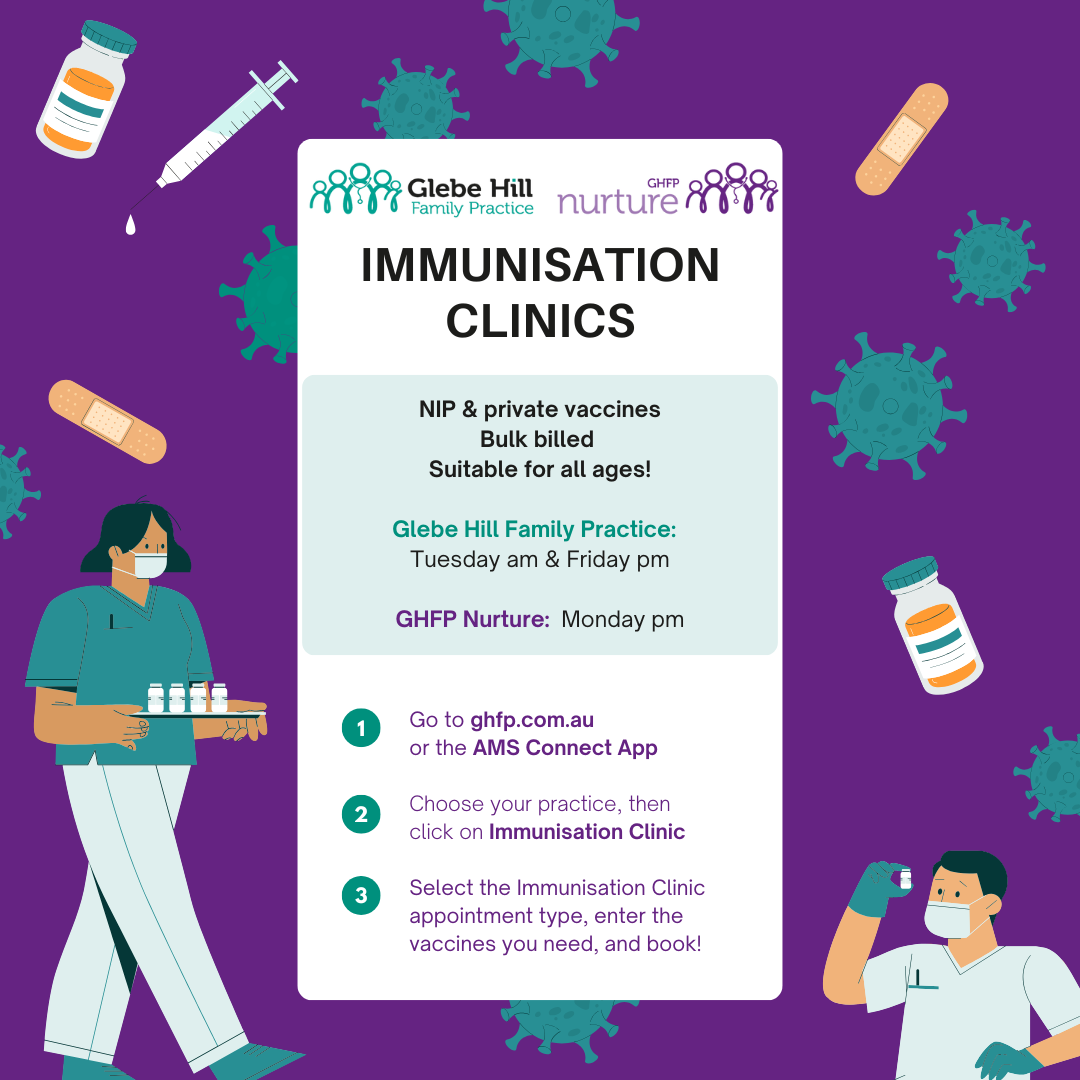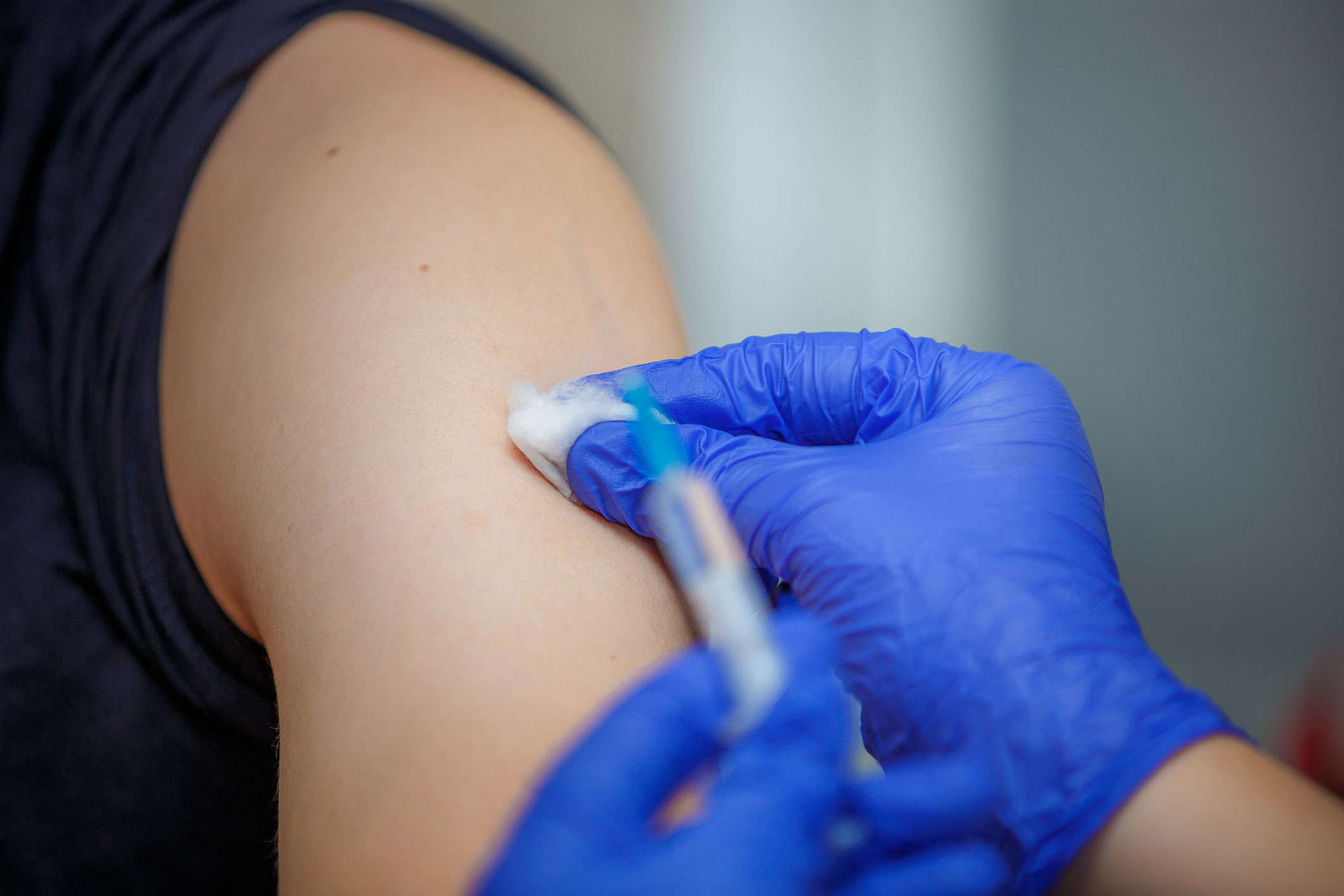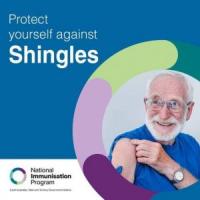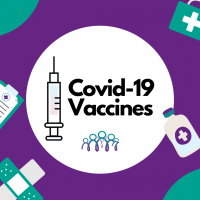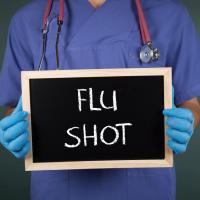Immunisation
The full schedule of vaccines on the National Immunisation Program Schedule, Influenza Vaccine, vaccines suitable for overseas travel, and other private vaccines including Meningococcal vaccines are available at Glebe Hill Family Practice and GHFP Nurture.
Bulk-billed Immunisation Clinics are run at each practice each week. Immunisation Clinic appointments can be booked online.
Why Immunise?
Immunisation is one of the best ways to protect yourself, your children and safeguard the health of future generations.
Immunisation remains the safest and most effective way to stop the spread of many of the world’s most infectious diseases. Before the major vaccination campaigns of the 1960s and ’70s, diseases like tetanus, diphtheria and whooping cough (pertussis) killed thousands of young children each year. Today, deaths from these diseases are extremely rare in Australia, and the rest of the developed world.
If enough people in the community are immunised, the infection can no longer be spread from person to person and the disease can die out altogether.
How Immunisation Works
Immunisation is a simple, safe and highly effective way of protecting children and adults from harmful diseases before they come into contact with them. It is estimated that vaccinations currently save up to three million lives worldwide each year.
Immunisation uses the body’s natural defence mechanism – the immune response – to build resistance to specific viral infections. When a person is vaccinated, their body produces an immune response in the same way their body would after exposure to a disease, but without the person suffering symptoms of the disease. When a person comes in contact with that disease in the future, their immune system will respond fast enough to prevent the person developing the disease.
Immunisation protects more than just one child’s health. Vaccinating a child will reduce the opportunity for that child to pass that disease on to another – especially young babies who have not yet been fully immunised.
When levels of immunisation in a community are sufficiently high, the risk of specific diseases can fall so low that even those who are too young or too sick to be given a vaccine will not be exposed to it. This communal or ‘herd immunity’ can save countless lives.
Putting Safety First
Rapid advances in the science of immunisation mean that modern vaccines are extremely safe, and serious reactions to them are rare.
Safety testing is a key component of vaccine development and use. All vaccines used in Australia are thoroughly tested for safety and effectiveness. In development they are rigorously tested on thousands of people in progressively larger clinical trials. They are not included in the National Immunisation Program until they have been approved for use by the Therapeutic Goods Administration (TGA) to ensure they meet strict safety guidelines and are evaluated to ensure they are effective, comply with strict manufacturing and production standards, and have a good safety record.
Vaccines remain subject to testing after their introduction into general use through a variety of mechanisms, such as further clinical trials and surveillance of disease and vaccine adverse events. Australia has a national surveillance system, which includes reports of adverse events following immunisation from state and territory systems as well as information sent directly from health professionals, consumers and vaccine companies. These reports are reviewed by the TGA and referred as required to expert committees, such as the Advisory Committee on the Safety of Vaccines (ACSOV), to ensure ongoing assessment of safety.
Although vaccines may occasionally produce undesirable side-effects, such as pain and redness at the injection site, the majority of these reactions are mild and are quickly resolved.
The possible adverse reactions to vaccination will be discussed with you at your immunisation appointment at Glebe Hill Family Practice.


